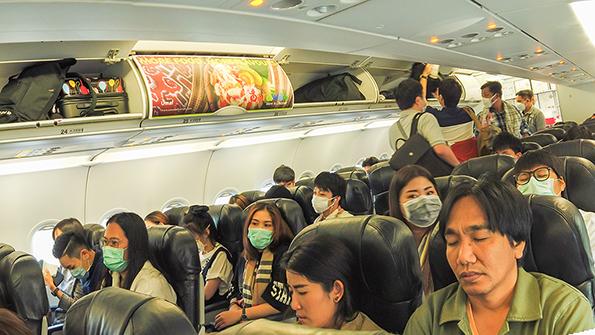
As grim as the present situation is for companies across the aerospace sector, top executives increasingly believe the business aviation segment may recover faster than airline travel.
“The running joke is that the private-jet industry is the first into recession and the last out,” says Ian Moore, chief commercial officer of global operator Vistajet. “I think in this particular case we’re probably the last into semi-hibernation and probably the first out.”
The airlines never may be back to where they were six months ago, says Flying Colours Corp. Director of Sales Kevin Kliethermes, adding: “Routes are going to be shrunk; if you’re a corporate client trying to get from Florida to a meeting in Rochester, Minnesota, what used to be a two-hop airline trip maybe will become three hops. So you don’t make that trip. But for someone at the level of a CEO or executive vice president, they’ll probably hop on a private airplane.”
Moore agrees. Even with much of the world still in lockdown due to the COVID-19 virus, VistaJet is seeing a significant ramp-up in interest in its membership programs, which offer guaranteed availability of its business jets without the obligations of ownership. He also says an influx of customers who will pay a premium for travel in a private jet versus first or business class on scheduled airlines could herald a boom time for his company and others like it.
“We’re already seeing some corporations sign up with us for large chunks of hours, who’ve sold their aircraft or who have stopped buying an additional aircraft, to come fly with us,” Moore reports. “We’ve also seen a deepening in the layers of people they want to fly; it’s not just the chairman or president or CEO, it’s also senior management level.”
Those who used to travel in first class may not want to sit in an airliner with up to 300 people, says Kevin Ducksbury, chairman of the Air Charter Association, a UK trade body. “If they can afford it, they may prefer to travel in smaller groups, in business jets.”
Safety concerns and limited airline service will spur the initial recovery in business aviation. But demand likely will level off, or even dip, as the airlines get back on track and an effective vaccine becomes available for the virus. This will likely provide a “W”-shaped recovery for the business aviation industry.
“We’re very positive about the future of the industry and what it can do,” says Moore. “As with every crisis, there’s always opportunity, and I think this is a unique one.”
This situation is going to underscore the need for business aviation, says Flying Colours’ Kliethermes. “People I’ve talked to—business owners, independently wealthy people—they’re not getting on an airline.” Many of those who haven’t experienced business aviation before are likely to become converts.
“I think it’s going to be a very different corporate travel market when we come out of this,” says Adam Twidell, CEO of PrivateFly, one of the world’s largest digital platforms for on-demand private jet charter. British-based Privatefly is owned by the OneSky family of brands, which include the Sentient Jet and Flexjet charter and fractional ownership companies.
“Businesses that have to fly their employees will be looking at how they can mitigate their risk, and for sure they’ll be assessing the cost and feasibility of private aviation. We are seeing that now,” he says.
“This is a real opportunity for business aviation to shine,” Twidell adds. “It’s like having a longer Super Bowl or Champions League or the Olympics. Events such as those give private aviation the opportunity to showcase itself, and now we’re seeing a much longer period of time where we can really show ourselves.”
